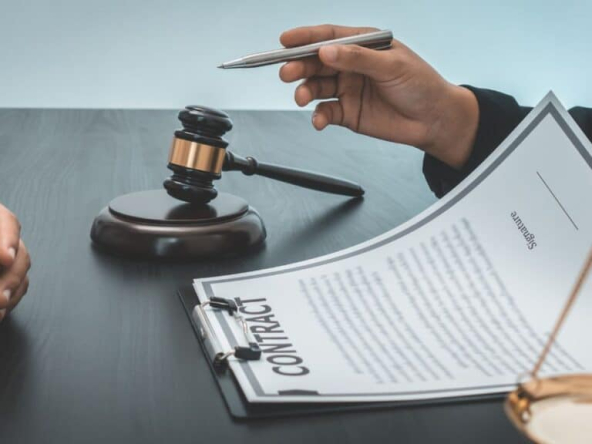Leasing is a common practice in the world of real estate and business, offering individuals and organizations the flexibility of occupying a property without the long-term commitment of ownership.
While lease agreements can be relatively straightforward, there are a multitude of legal considerations that both landlords and tenants should be aware of to ensure a smooth and mutually beneficial leasing experience.
In this comprehensive guide, we’ll explore the essential legal aspects of lease agreements, from drafting and negotiation to termination and dispute resolution.
Drafting a Lease Agreement
Parties and Property Description
The first step in creating a legally sound lease agreement is identifying the parties involved. The lease should clearly specify the names of both the landlord and tenant(s), their contact information, and any authorized representatives. Additionally, a detailed description of the leased property, including its address and any specific areas or amenities included, should be provided.
Lease Term and Rent
One of the fundamental aspects of a lease agreement is defining the lease term and rent details. This section should outline the duration of the lease, whether it’s a fixed-term lease (e.g., one year) or a month-to-month arrangement. The agreed-upon rent amount, due date, and any late fees or grace periods should also be clearly specified.
Security Deposit and Maintenance Responsibilities
The lease should address the security deposit amount, its purpose, and the conditions under which it may be withheld. Both parties must understand their respective maintenance responsibilities, such as who is responsible for repairs, utilities, and property upkeep. These provisions can help prevent disputes later on.
Legal Compliance
Local Laws and Regulations
Lease agreements must adhere to local, state, and federal laws and regulations. Landlords and tenants should be aware of their legal obligations, such as fair housing laws, building codes, and health and safety requirements. Failure to comply with these laws can result in legal consequences.
Discrimination and Fair Housing
Fair housing laws prohibit discrimination based on factors such as race, color, religion, sex, national origin, disability, and familial status. Lease agreements should include a statement affirming compliance with these laws and make it clear that discrimination will not be tolerated.
Rights and Responsibilities
Entry and Privacy
The lease should outline the landlord’s right to enter the property and the required notice period. Tenants have the right to privacy, and landlords must respect this by providing proper notice before entering for inspections or repairs.
Repairs and Maintenance
Lease agreements should specify which party is responsible for routine maintenance and repairs. Landlords should address how they will handle maintenance requests and ensure that tenants are not held accountable for normal wear and tear.
Rent Increases and Renewals
For fixed-term leases, the lease should detail the process for renewals and any potential rent increases. This ensures transparency and prevents unexpected changes in rental terms.
Termination and Eviction
Grounds for Termination
Lease agreements must specify the grounds for termination, which could include non-payment of rent, violation of lease terms, or other breaches of the agreement. Clearly defined termination clauses protect both parties’ interests.
Eviction Procedures
In the unfortunate event that eviction becomes necessary, the lease should outline the legal procedures and notice requirements for eviction. It’s crucial for landlords to follow these procedures precisely to avoid legal complications.
Dispute Resolution
Mediation and Arbitration
To address disagreements or disputes that may arise during the lease term, the agreement can include provisions for mediation or arbitration. These alternative dispute resolution methods can save both parties time and money compared to going to court.
Legal Remedies
In cases where mediation or arbitration fails to resolve a dispute, the lease should specify the legal remedies available to both parties. This might involve seeking damages, injunctive relief, or other legal actions.
Conclusion
Lease agreements are legally binding contracts that require careful consideration of various aspects to protect the rights and interests of both landlords and tenants.
By thoroughly addressing the points discussed in this guide, you can create a lease agreement that not only complies with the law but also fosters a positive and mutually beneficial leasing experience.
Seeking legal counsel or consulting with a real estate professional is often advisable when dealing with complex lease agreements to ensure full compliance with applicable laws and regulations. Remember, a well-drafted lease agreement is the foundation of a successful landlord-tenant relationship.




